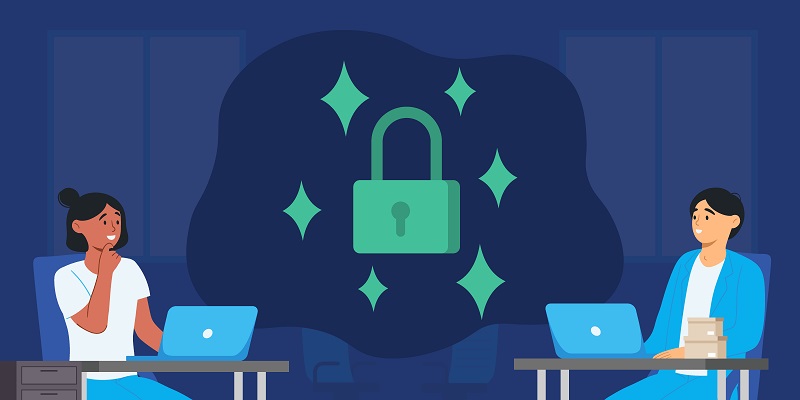Security Tips That Will Keep Your Business Safe and Protected

In an increasingly digital and interconnected world, the security of your business is paramount. Whether you’re a small startup or a large corporation, the threat landscape is constantly evolving, and safeguarding your assets, data, and reputation is a non-negotiable aspect of successful business management. In this comprehensive guide, you’ll learn everything you’ve always wanted to know about an entire range of security tips that you must consider to keep your business safe from a multitude of threats. So, if you want to be equipped with the knowledge and strategies necessary to fortify your business against the ever-present risks, make sure you check these things out ASAP.
Cybersecurity Measures
In the digital age, where technology permeates every aspect of business operations, cyber threats have risen to the forefront of security concerns. Establishing and maintaining robust cybersecurity measures is non-negotiable. It entails a multifaceted approach encompassing various strategies and practices. Begin by consistently updating and patching your software, closing potential vulnerabilities that could be exploited by malicious actors. Employ the principle of least privilege to restrict access to sensitive systems, granting employees access only to the resources necessary for their roles. Implementing strong, unique passwords and multi-factor authentication (MFA) adds an additional layer of defense against unauthorized access.
Data Backup and Recovery
In today’s data-driven business environment, protecting your data is paramount. It’s not just about data security; it’s also about data resilience. To ensure the continuity of your operations and safeguard against data loss caused by hardware failures, cyberattacks, or unforeseen disasters, adopt a robust data backup and recovery strategy. Regularly back up your data to secure, off-site locations or cloud-based services to minimize the risk of irrevocable data loss. Simultaneously, establish a comprehensive data recovery plan that delineates the steps to take in the event of data breaches or system failures. Periodically test these recovery procedures to ensure they are effective and reliable when needed most.
Physical Security
While the digital realm often dominates discussions on security, physical security remains a foundational component. Safeguarding your physical premises is just as vital as protecting your digital assets. Consider investing in access control systems, surveillance cameras, and alarm systems to secure your facilities. Also, don’t forget different fencing solutions, and make sure you stick to local suppliers who can install and maintain your fence in the future. For instance, if you’re located in Australia, you can look into ideas for security fencing in Australia and find options that could suit you the most and keep your business safe. Implement visitor registration and badge systems to meticulously track and regulate access to your premises. In some cases, employing dedicated security personnel can provide an additional layer of protection, helping to monitor and respond to potential threats effectively.
Employee Training
The human element remains a critical factor in maintaining security. Even the most advanced security systems can be compromised if employees aren’t adequately trained. Conducting regular security training sessions is instrumental in cultivating a security-aware culture within your organization. These sessions should cover a range of topics, from recognizing and responding to potential threats like phishing emails to understanding and adhering to security protocols. When employees are well-versed in security best practices, they become an active line of defense, ensuring that the organization’s security posture remains robust.
Access Control
Access control is at the heart of any security strategy. To safeguard sensitive data and critical systems, it’s imperative to implement strict access controls. Role-based access controls (RBAC) can be instrumental in ensuring that employees only have access to the resources that are pertinent to their job roles. Routine reviews and updates of access permissions are crucial to mitigate the risk of unauthorized access and maintain the integrity of your security framework.
Network Security
The security of your network infrastructure is pivotal to safeguarding digital assets and maintaining business continuity. Network security measures include the use of firewalls, intrusion detection systems, and encryption technologies to protect data in transit. Routine network audits and traffic monitoring are essential for detecting and responding to suspicious activities promptly. Additionally, consider network segmentation to limit the lateral movement of threats in the event of a breach, thereby preventing the spread of an attack across your network.
In today’s dynamic business landscape, security is not an option; it’s a necessity. Protecting your business from a multitude of threats, whether they are cyberattacks, data breaches, physical security breaches, or broader crises, requires a comprehensive and proactive approach. By implementing the security tips discussed in this article, you’re taking the necessary steps to safeguard your business’s future. Remember, security is an ongoing process that evolves with the ever-changing threat landscape. Stay vigilant, stay informed, and stay secure to ensure the long-term success and resilience of your business. Your commitment to security is an investment that will pay dividends in the form of a safer, more secure, and more successful business.